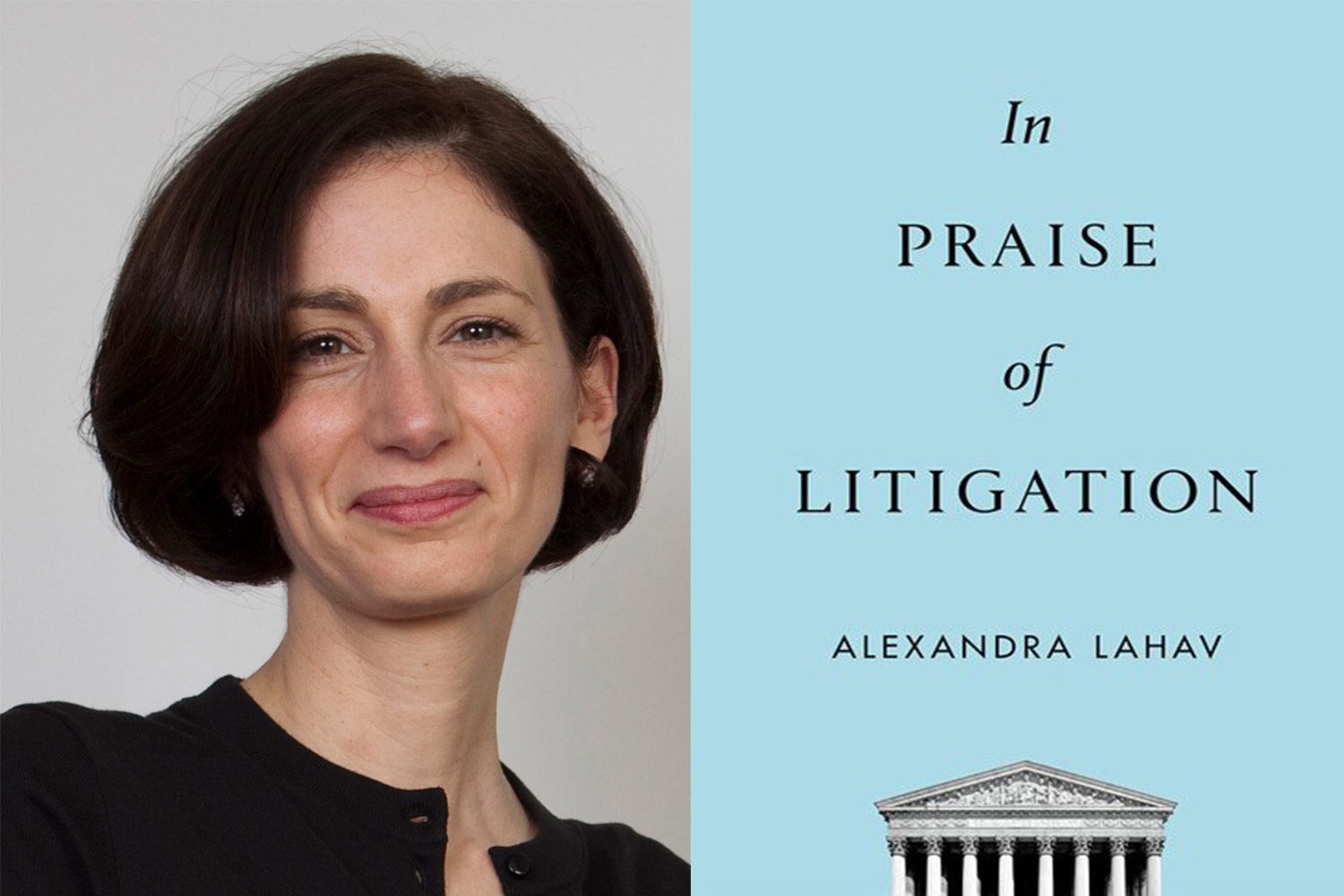The popular perception of a nation awash in frivolous lawsuits and outrageous damage awards is not just inaccurate, it is undermining one of the pillars of American democracy, writes UConn Law Professor Alexandra Lahav in a new book, In Praise of Litigation.
This is because courts and legislatures have reacted by limiting people’s ability to bring suit in areas as diverse as the securities laws, civil rights, employment, and personal injury.
“Limitations on lawsuits have the practical effect of limiting individual rights,” she explains, “because lawsuits are the central mechanism for enforcing and protecting rights in the United States.” She debunks the common claims that litigation is rampant explaining that “Evidence indicates that most people who are harmed do not sue, many who do sue receive relatively small recoveries, and the number of cases where there have been large punitive damages awards are in the single digits.”
The book, released this month by the Oxford University Press, examines lawsuits that have promoted social change and brought wrongdoing to light, including school desegregation and advances in marriage rights, along with lawsuits that enforced the Americans with Disabilities Act, made cars and other products safer, and compensated individuals for damage done to them. Lahav points out that litigation has costs, but its benefits are too often ignored in reform efforts. These benefits include enforcing the law, releasing important information, and promoting both participation and equality among citizens.
The book is an important reminder of why litigation matters, according to David Cole, a Georgetown Law professor and national legal director of the American Civil Liberties Union. “In a culture where it has become fashionable to bash lawyers and the lawsuits they file, Alexandra Lahav reminds us, in forceful, engaging, and compelling prose, that litigation plays an essential role in our democracy,” he writes. Publishers Weekly praises it for “well-reasoned analyses that perfectly balance detail with brevity.”
Lahav, an expert on civil procedure, complex litigation and mass torts, has written and spoken extensively on civil procedure and the role of litigation in democracy. In addition to writing a popular civil procedure casebook, she has testified before Congress and written amicus briefs in Supreme Court cases relating to class actions. Her articles have been cited by numerous district and appellate courts.
Lahav was a teaching fellow at Stanford Law School before she joined the UConn Law faculty in 2004, and she has also taught at Columbia, Harvard and Yale.



